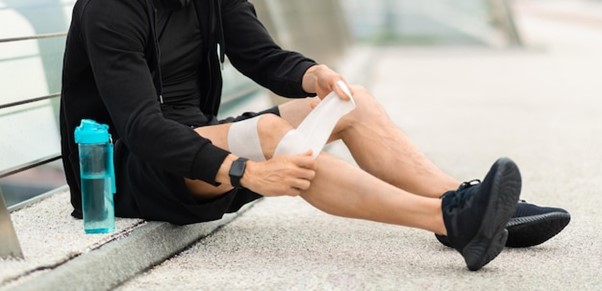An injury to the medial collateral ligament can affect your knee’s stability and function, causing pain and difficulty in movement. The MCL is a ligament located on the inner side of your knee, connecting the tibia (shinbone) to the femur (thighbone). It plays a vital role in stabilizing the knee, especially when you move or change directions.
What Causes MCL Injuries?
MCL injuries typically happen as a result of direct impacts or hits to the knee or to the outer part of the knee, which causes the ligament to stretch or tear. This is common in contact sports like football, soccer, and basketball. If you’ve been tackled or hit on the side of your knee, the MCL can be damaged, leading to pain and swelling.
What Are the Symptoms of an MCL Injury?
An MCL injury can cause a variety of symptoms, including:
- A popping sound at the time of injury
- Pain and tenderness along the inner part of the knee
- Swelling in the knee joint
- A feeling of instability or the knee “giving out” when weight is placed on it
- Difficulty with movement, such as locking or catching of the knee
If you experience these symptoms after a sports injury or accident, it’s essential to seek medical advice to determine the severity of the damage.
How is an MCL Injury Diagnosed?
A doctor can usually diagnose an MCL injury through a physical examination. They will check for looseness in your knee and assess your pain. If needed, imaging tests like X-rays or MRIs may be ordered. X-rays help rule out bone fractures, while MRIs provide detailed images of the ligaments and muscles, assissting to determine the extent of the injury.
What Are the Treatment Options for MCL Injuries?
Treatment of MCL varies based on the severity of the injury:
- Grade 1 MCL Injury: Rest, ice, and over-the-counter pain relievers are usually enough to heal the ligament.
- Grade 2 MCL Injury: This involves partial tearing of the ligament, requiring physical therapy and a brace for support.
- Grade 3 MCL Injury: A complete tear may require surgery, especially if the ligament cannot heal on its own.
In many cases, the injury will heal with rest and proper care. Ice packs, elevation, and anti-inflammatory medications can help reduce pain and swelling.
Can Physical Therapy Help with MCL Injuries?
Yes! Once the acute pain and swelling subside, physical therapy is a crucial part of the recovery process. Therapy mainly focuses on strengthening the muscles around your knee, improving its flexibility, and restoring its range of motion. This is crucial to prevent future injuries and regain full knee function.
Conclusion: Get the Best Care at Sree Hospital
If you suspect an MCL injury, don’t wait—early intervention is key to faster recovery. At Sree Hospital, we offer comprehensive care for knee injuries, including expert diagnosis, personalized treatment plans, and rehabilitation services. Our team of specialists is here to help you get back on your feet quickly and safely. Contact Sree Hospital today to schedule an appointment and start your recovery journey.


